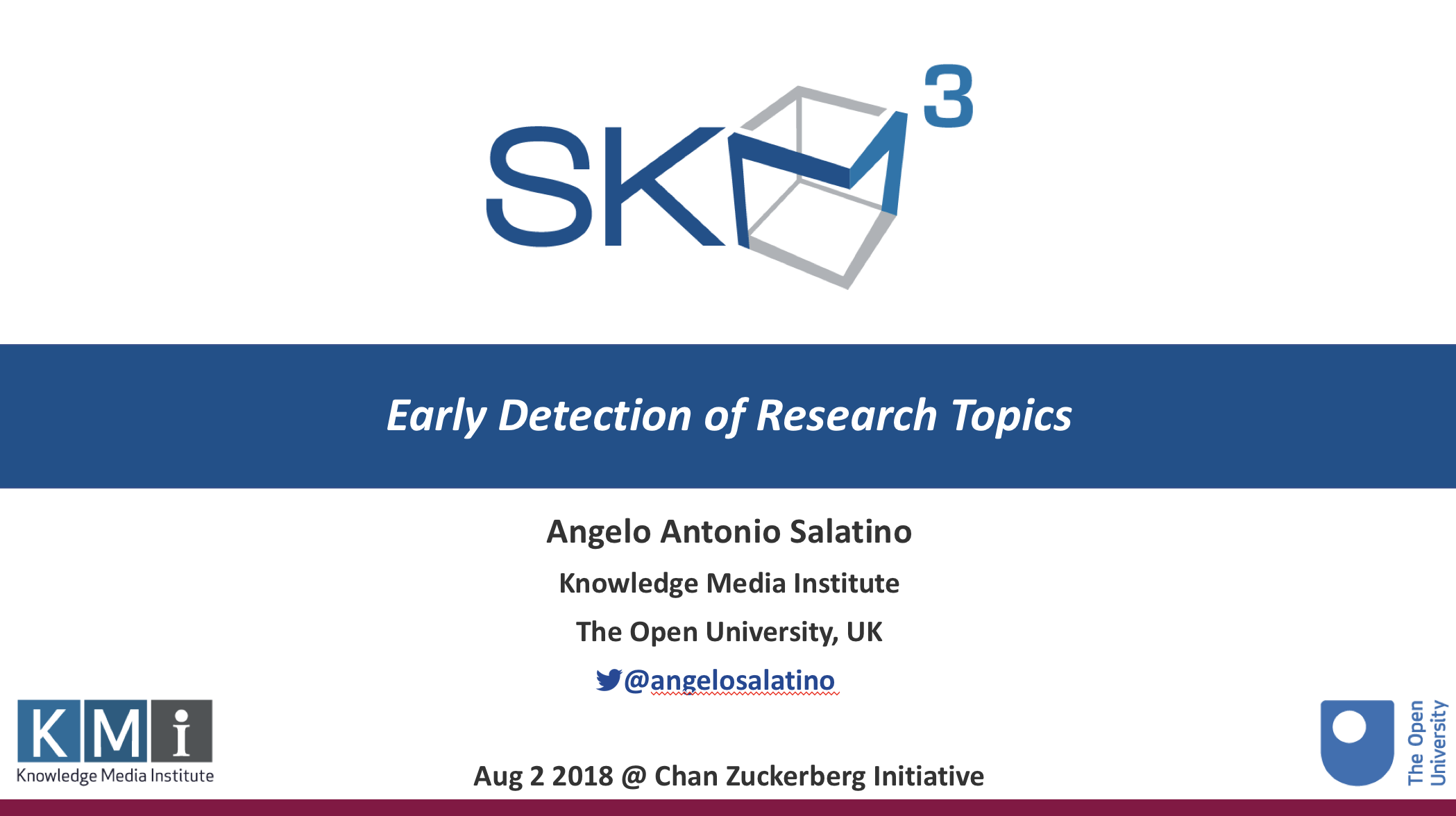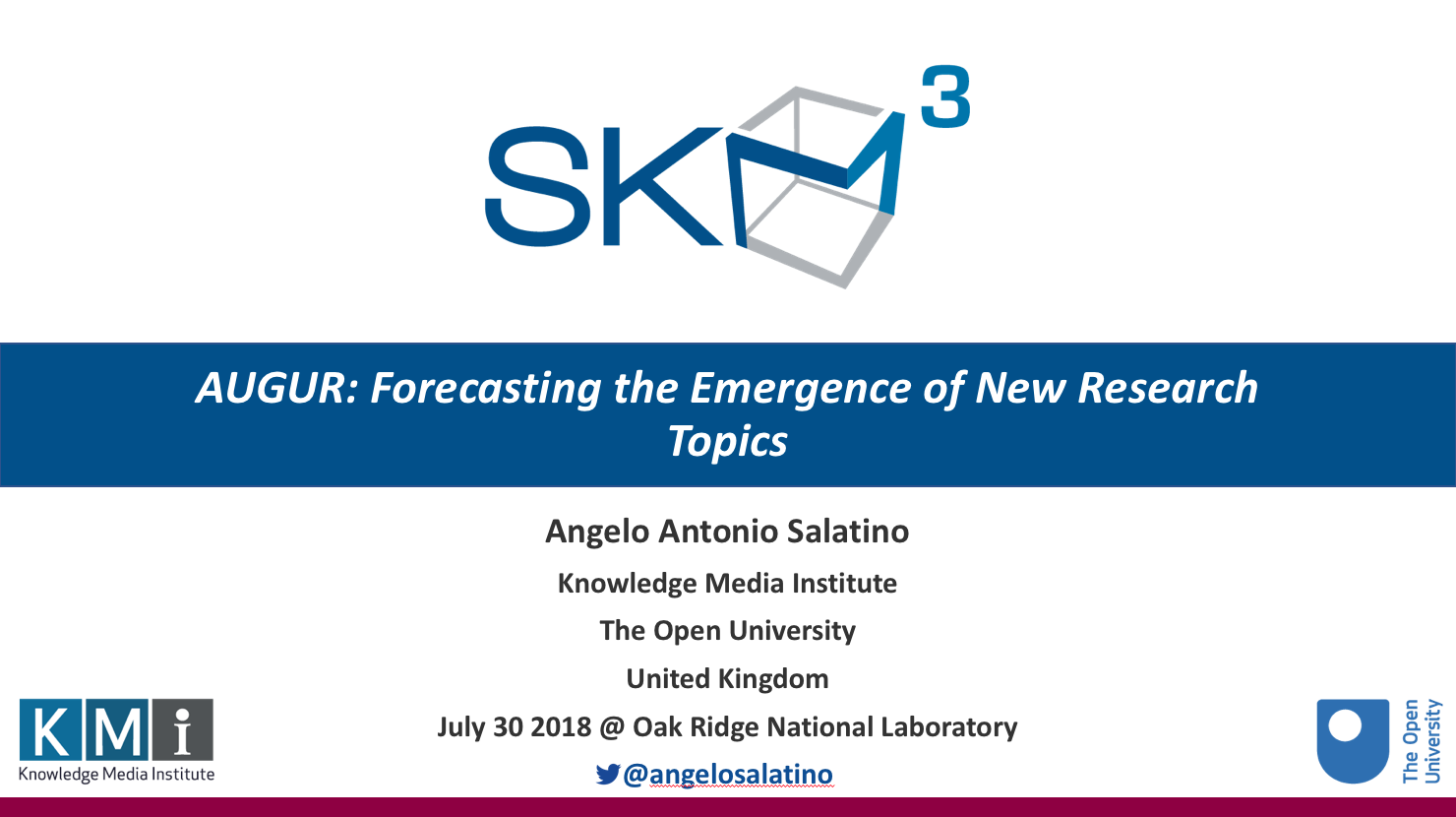This is a little project that my friend Akshika and I brought forward with the support of The Open University. In this video, we talk about the things we wish we had known before starting our PhD journey. Are you a PhD student or are you planning to start soon? Give it a look.
Category: Talk
Interview about my PHD Viva
A fellow researcher (Tina Papathoma) asked me to record a video in which I discuss my experience with the writing and defending my PhD thesis. She presented it to the “How to finish your PhD thesis and successfully defend it” workshop at the 15th EATEL Summer School on Technology Enhanced Learning (JTELSS 2019) which took place on […]

Invited Talk – Early detection of Research Topics
On 2nd of August 2018, I have been invited by Boris Veytsman, Principal Research Scientist at Chan Zuckerberg Initiative (formerly Meta), to give a talk about my PhD work. Differently from my previous talk to the ORNL group, I had the opportunity to describe my doctoral work more comprehensively. More specifically, I initially showed what is available […]

Invited Talk – AUGUR: Forecasting the Emergence of New Research Topics
On 30th Jul 2018, I have been invited from Dasha Herrmannova, former PhD student at the KMi, to give a talk at the “Machine Learning and Graph Mining for Big Scholarly Data” workshop organised for the Computational Data Analytics Group at Oak Ridge National Laboratory (ORNL). In this talk, named “AUGUR: Forecasting the Emergence of New […]

Department Research Seminar: Early Detection of Research Topics
On the 8th February I delivered a seminar to my department (KMi @ OU) in which I described the work I have been doing in the last two years for my postgraduate research. I started with a little bit of introduction about science. Shortly, I moved to the currently available technologies for keeping track of the […]
Introductory Lecture to Audio Signal Processing
With this post, slides and source code, used during the introductory lecture on Audio Signal Processing for Human Computer Interaction, are presented. The slides are available on my Slideshare profile or you can follow the link below. Instead, for source code you can download a zip using the GitHub section below or cloning the repository.


